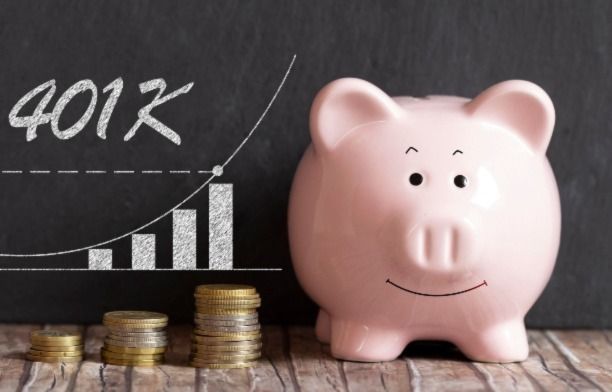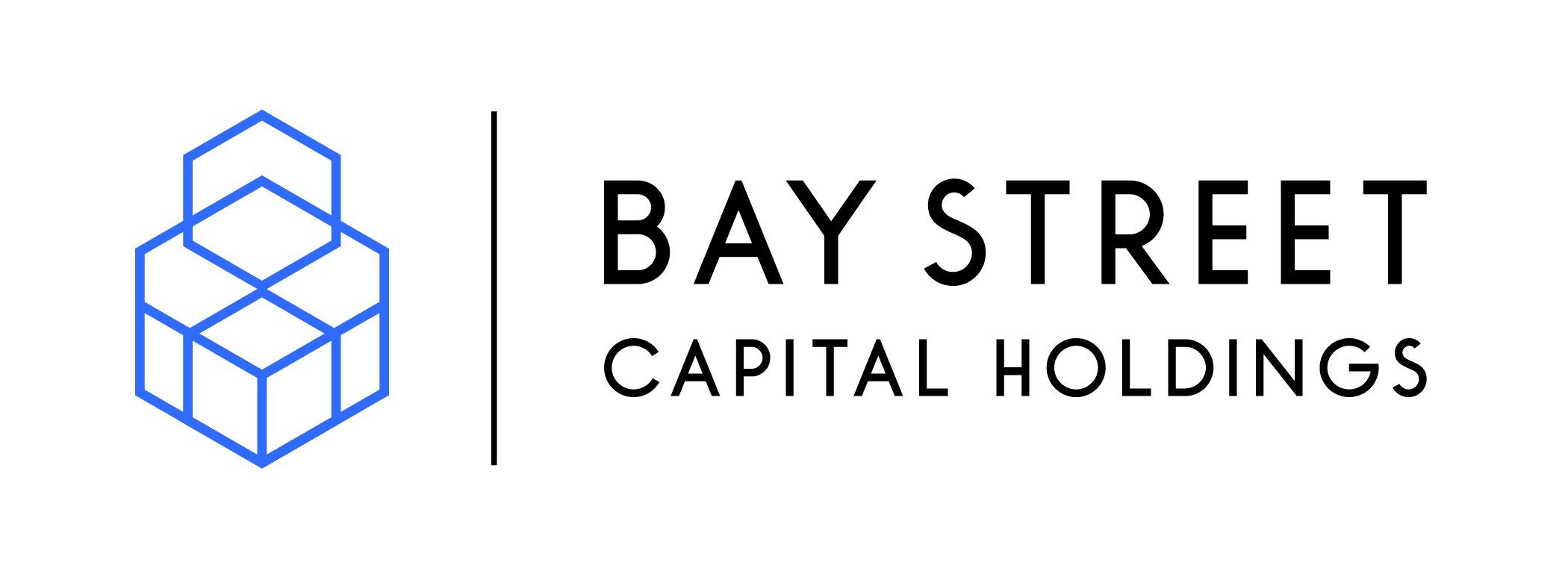Can I Use My 401k to Buy a House: Pros and Cons Outlined
Owning a home is a valid dream for many because it can offer you stability, help you build wealth and secure financial stability for the future. And the best thing about it is that you no longer have to pay rent.

However, the process of home ownership is not the easiest, the biggest barrier being the down payment that is required to secure a house as a result of financial hardship. In America, the down payment required to buy a home is 20% of a home's purchase price.
Another option would be to secure a Federal Housing Administration (FHA) loan which has a minimum down payment of only 3.5%. The loan is available to all qualified buyers, regardless of income level. However, since the lending requirements are more flexible, the mortgage interest rates can also be higher, and the buyer will also have to pay monthly mortgage insurance premiums, together with their monthly loan payments.
You can also be able to purchase a home with no down payment if you meet the specific restrictions of a United States Department of Agriculture (USDA) loan or a Veteran Affairs (VA) loan.
Because of these reasons, some people may opt to use their 401K to get money to buy a house for use as their primary residence. Is this a good alternative? Let's do a deep dive and see some pros and cons that come with taking this route.
Key Points
- A 401(k) is a retirement savings plan offered by many employers in the U.S.
- The two options for buying a house using your 401(k) are either taking a 401(k) loan or making a withdrawal from your 401(k)
- For early withdrawals, The IRS charges a 20% tax withholding and a 10% early withdrawal penalty
- When repaying the loan, you are required to pay interest which is usually between 1 to 2%, until you fully clear the loan. However, you don’t have to pay income taxes or tax penalties
- Before you decide to use your 401(k) to buy a house, speak to a financial advisor first
Disclaimer
The contents of this article are for educational purposes only. They are not intended to be a source of professional financial advice. You will find experts on financial planning, financial management, and real estate here. More on disclaimers here.
What is a 401(k) and a Roth 401(k)?

401(k) Account
A 401(k) is a retirement savings plan offered by many employers in the United States. It allows employees to save for retirement by making contributions from their pre-tax income, which means the money is not taxed until it is withdrawn, ideally in retirement. This can help you to lower your tax bill for the year. Employers may also make matching contributions to their employees' 401(k) accounts, up to a certain amount.
The money in a 401(k) account can be invested in a variety of funds, such as stocks, bonds, and mutual funds, depending on the plan's options. Over time, the money in a 401(k) account can grow tax-free, allowing it to potentially grow larger than if it were invested in a taxable account.
However, there are limits to how much employees can contribute to their 401(k) retirement account each year, and there may also be penalties for withdrawing money before retirement age.
Roth 401(k) Account
A Roth 401(k) is a type of retirement savings account that is similar to a traditional 401(k) plan, but with some key differences. The main difference is in how contributions and withdrawals are taxed.
In a Roth 401(k), contributions are made with after-tax dollars, meaning the money is taxed before it is put into the account. However, withdrawals in retirement are tax-free, including both the contributions and any earnings on those contributions.
This is in contrast to a traditional 401(k), where contributions are made with pre-tax dollars, meaning the money is taxed upon withdrawal in retirement. The advantage of a Roth 401(k) is that it allows you to potentially save more money in taxes in the long run, since you won't have to pay taxes on the money you withdraw.
Like a traditional 401(k), there are limits on how much you can contribute to a Roth 401(k) each year, and there may be penalties for withdrawing money before retirement age. However, some employers offer both traditional and Roth 401(k) options, allowing employees to choose which one is best for their individual needs.
Can you use your 401k to buy a house?

Ideally, 401(k) account holders should not withdraw money from their accounts before they turn 59½ years old or before they have turned 55 years and have chosen to leave their job or have lost their job.
But to answer the question on whether you can buy a house using your 401(k) account, yes you can. However, here are some things that you need to take note of:
- For early withdrawals, The IRS charges a 20% tax withholding and a 10% early withdrawal penalty on the amount of money being taken out of the account.
- For the amount of money taken out, you will have to pay income tax because it is no longer in the protected retirement savings account.
- When repaying back the money (to yourself essentially), you have to pay interest on the loan that you took.
- The terms of this loan repayment and the interest rate are not standard. They differ depending on your specific 401(k) plan provider or administrator.
- Loan repayments to your 401(k) are not considered as contributions and therefore, you are not eligible for a tax break or employer match on them.
- Generally, the maximum loan term is five years. However, if you take a loan to buy a principal residence, you may be able to pay it back over a longer period than five years.
How To Use Your 401(k) To Buy A House
If you make the decision to use your home using your 401K, here are the two viable options that you can choose from.
Option 1: Take a 401(k) Loan
Option one is taking a 401(k) loan which is basically you taking debt against your future. Some things to note with this option are:
- The IRS is able to limit how much money you can borrow for a house downpayment. You can borrow either up to $50,000 or half the amount that you have saved up in your 401(k).
- Depending on your 401(k) plan, you could have up to 25 years to pay back the loan with interest. Typically, you will be required to pay interest anywhere between 1 to 2%, and until you fully clear the loan, you will not be able to make any additional contributions to your 401(k). On the downside, that means that your employer won't be matching any contributions and you'll also be missing out on years of potential growth of your money.
- Some and not all employers offer 401(k) loans as an option in their retirement plans. If your employer offers this as an option, it is important to note that in case you leave your current job or are laid off, you are still required to repay the loan in full by the next tax filing date. In case you are unable to clear the loan by the due date, then that means that you'll be subject to income tax. In short, you'll be required to pay the 10% early withdrawal penalty. So in case your job is not that stable or you're planning to change jobs, think twice before taking a 401(k) loan.
- Not all employers offer 401(k) loans as an option in their retirement plans, though. It’s also important to note that you are still required to repay the loan even if you leave your current job or are laid off. In fact, your repayment period shortens once that happens, and the loan must be repaid in full by the
- On the positive side though, with this option you can avoid the 10% early withdrawal penalty and also the amount that you withdraw will not be subject to income tax.
- The other thing is that taking a 401(k) loan does not count toward your debt-to-income ratio, meaning that it will not be counted by credit bureaus. Therefore, when you take a 401(k) loan, it won't negatively affect your credit score and so you will still be eligible for a mortgage.
Option 2: Make A 401(k) Withdrawal (Hardship Withdrawal)
The second option is making a withdrawal from your 401(k), which is basically classified as a hardship withdrawal. Here are some things to note with this option:
- A hardship withdrawal is basically taking out money from your 401(k) earlier or before retirement age which is set out by the IRS to be 59 1/2 years old. If you withdraw the money from your 401(k) before you hit 59 1/2 years, you’ll be required to pay a 10% early withdrawal penalty. However, there are some exceptions such as death and permanent disability where you won't be required to pay the 10% early withdrawal penalty.
- Some 401(k) plans will allow you to take money out of your 401(k) while others won't. For plans that do, you have to prove to your employer and 401(k) administrator or plan manager that that money is needed for an emergency like funeral expenses or for to cover for medical costs. Some plans consider making a down payment for a house as hardship while others don't. So before you make any commitments, be sure to find out the 401(k) rules that your employer has put in place.
- As for taxes, once you take your money out of 401(k), it then becomes subject to income taxes. For early withdrawals, you are charged a mandatory 20% federal tax withholding.
- on early 401(k) withdrawals right off the bank.
Pros and Cons of Using Your 401K to Buy a House
Using your 401(k) to buy a house is known as a 401(k) loan or a hardship withdrawal, and it can have both advantages and disadvantages. Here are some pros and cons to consider:
Pros
No credit check required
Unlike a traditional loan, a 401(k) loan does not require a credit check, so it may be an option for those who have poor credit or cannot qualify for a traditional loan.
Lower interest rates
The interest rate on a 401(k) loan is typically lower than other types of loans, such as personal loans or credit cards, which can save you money in interest payments.
Repay yourself
With a 401(k) loan, you are borrowing money from your own retirement savings, so you are essentially repaying yourself with interest.
Cons
Penalties for non-repayment
If you are unable to repay the loan according to the terms of the 401(k) plan, you may be subject to penalties and taxes on the remaining balance.
Missed investment gains
When you take a loan from your 401(k), the money is no longer invested, which means you may miss out on potential investment gains over time.
Slower retirement savings growth
Since you are taking money out of your 401(k) account, your retirement savings will be reduced, which can slow down the growth of your retirement savings over time.
Risk of default
If you lose your job or leave your employer before repaying the loan, the outstanding balance may be due immediately, which can put you at risk of default.
Overall, using your 401(k) to buy a house can be a viable option in certain circumstances, but it's important to carefully weigh the pros and cons and consider all of your options before making a decision. It's also important to consult with a financial advisor to help you make the best decision for your individual situation.
How to Buy a House Using Your 401(k) account
While it is possible to use your 401(k) account to buy a house, it's important to remember that it is not the best option for everyone. Before considering this route, you should speak with a financial advisor to discuss your specific situation and explore all of your options.
If you do decide to use your 401(k) account to buy a house, here are the general steps to follow:
Check your plan
Not all 401(k) plans allow for the option to borrow against your account or withdraw funds for a first-time home purchase. Check with your plan administrator to confirm that you are eligible for these options and to find out what the rules and limitations are.
Determine how much you need
Before withdrawing from your 401(k), determine how much you need to purchase your home. This will help you determine whether a 401(k) loan or a hardship withdrawal is the best option for you.
Apply for the loan or withdrawal
If you decide to take a loan, you will need to apply through your 401(k) plan administrator. If you decide to take a hardship withdrawal, you will need to complete the necessary paperwork and provide documentation to show that you meet the criteria for a hardship withdrawal.
Wait for approval
Once you have submitted your application, you will need to wait for approval. The timeline for approval can vary depending on your plan administrator and the type of withdrawal you are requesting.
Use the funds to purchase your home
Once you have received the funds, you can use them to purchase your home. Keep in mind that there may be restrictions on how the funds can be used, so be sure to follow the guidelines set by your plan administrator.
Repay the loan
If you took a loan, you will need to repay the loan according to the terms set by your plan administrator. Typically, this will involve making regular payments over a set period of time, often five years or less.
Plan for retirement
While using your 401(k) account to buy a house can be a helpful option in certain situations, it's important to remember that your retirement savings will be reduced as a result. Make sure to adjust your retirement plan accordingly and work with a financial advisor to ensure that you are on track for your long-term financial goals.
Should You Buy a House Using Your 401(k)?

In conclusion, while investing in a house using your 401k account may be an option for some people, it is generally not recommended due to the fees, penalties and long-term impact on your retirement savings.
It is crucial to consider all of your options and speak with a financial advisor before making such a significant financial decision.
Bay Street Capital Holdings

Bay Street Capital Holdings is a Black-owned, independent investment advisory, wealth management, and financial planning firm headquartered in Palo Alto, CA. They firm manages portfolios with the goal of maintaining and increasing total assets and income with a high priority on managing total risk and volatility.
Bay Street was founded by William Huston founded after 13 years of supporting the United States' largest retirement plan ($650B) Thrift Savings Plan. In Scottsdale Arizona, Ekenna Anya-Gafu CFP, AAMS is recognized among the Best Financial Advisors for his responsiveness, friendliness, helpfulness, and detail.
Bay Street was founded to advocate for diverse and emerging fund managers and entrepreneurs.
Sources
https://www.investopedia.com/ask/answers/081815/can-i-take-my-401k-buy-house
https://www.rocketmortgage.com/learn/use-401k-to-buy-house
https://www.ramseysolutions.com/real-estate/401k-withdrawal-for-a-home-purchase
https://themortgagereports.com/18789/should-you-borrow-from-your-401k-to-purchase-a-home-gina-pogol
https://www.doughroller.net/retirement/pros-cons-using-401k-buy-home/





















